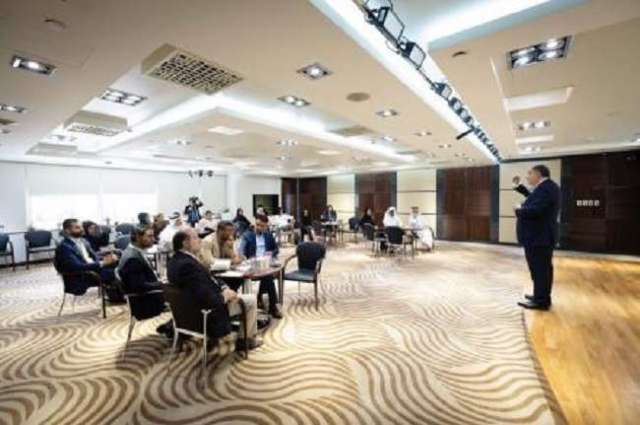The Government of Dubai Media Office (GDMO) today organised an interactive simulation exercise to sensitise participants on the existence of cultural misperception, with a focus on Islamophobia and incorrect images of Arab culture.
(Pakistan Point News - 17th Sep, 2018) DUBAI,17th September 2018 (WAM) - The Government of Dubai Media Office (GDMO) today organised an interactive simulation exercise to sensitise participants on the existence of cultural misperception, with a focus on Islamophobia and incorrect images of Arab culture.
Conducted for members of the Dubai Media Diplomacy and Strategic Communication Network, as part of its 2018 training programme for the Network, the exercise covered a range of issues related to cultural misperception and strategies to counter it.
The session was delivered by Dr. Murhaf Jouejati, Professor of International Relations at the Emirates Diplomatic academy. An expert on middle East political affairs, Dr. Jouejati is also a Scholar at the Middle East Institute in Washington, US, and Chairman of The Day After association.
Alia Altheeb, GDMO’s Senior Manager for Strategic Communications said: "The simulation exercise is one of a series of programmes we have introduced to support members of the Dubai Media Diplomacy and Strategic Communication Network in enhancing their understanding of international issues and how to communicate strategically in challenging situations. The programme supports our larger aim of helping to develop astute communicators who are skilled in managing international communications in any environment."
Explaining how cultural misperceptions can affect international relations, Jouejati said that sometimes leaders can react in a flawed way to developments based on a misperception of a situation. Citing an example, he said, minorities often tend to be blamed for economic problems in certain European countries. Misperception occurs both at the level of the individual and the state and can lead to racism, he pointed out.
Racist attitudes towards Arabs in the western world due to misperceptions at both individual and official levels have largely been fueled by the 9/11 incident. Instead of attributing the actions of 9/11 to "wrong-headed individuals", many in the west blamed Arabs as a whole, giving rise to Islamophobia, Jouejati said.
Commending the response from the UAE to the fallout of the 9/11 incident, he said that the establishment of institutions like Hedaya and Sawab have helped to offer wider solutions to eradicating terrorism. Such institutions are playing key roles in raising awareness that the violent actions of 9/11 are not Islamic in any way. "We have taken the bull by the horns," he said. Such initiatives will support the task not only of helping civil society identify when they need to communicate to officials about something that they sense is wrong but also rehabilitating individuals involved in extremism so that they can return to society as productive individuals.
However, Jouejati stressed on the need to spread awareness of such institutions internationally. Initiatives like this, he said, should not only be communicated through official or government channels but also through private enterprises and civil society. We need to market our initiatives properly to raise international awareness of the fact that countries in the Arab world are at the forefront of the fight against terrorism, he said. "It’s not only about the message but how we present the message," Jouejati pointed out.
Giving an example of how misperceptions can be countered, he talked about how a UAE national women’s ice hockey player’s participation in a ceremonial puck drop ahead of a National Hockey League game and her selfie with US players, which received an ovation from the audience, helped dispel stereotypes of women in the Arab world.
Jouejati particularly stressed on the need to work with ant-discrimination organisations in western countries that can be important allies in the effort to correct misperceptions about Arabs. While showing western audiences that we are genuine and authentic, it is important to strongly communicate that Arab and western cultures share human values, he said.
The simulation session featured drills to demonstrate how participants can best represent the UAE’s culture, highlight its achievements, and respond to racial slurs.




